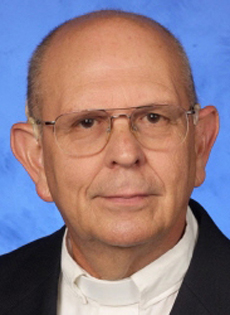
The exemplary pastor
Monday, August 9, 2021
*Fr. Eduardo Barrios, SJ
When a new pastor arrives at a parish that has been in existence for years, he should proceed with lead feet. He must begin by posing questions to the parish volunteers and parishioners about the different aspects of that community of the faithful. In no way can he present himself as someone who brings mentally prefabricated plans without taking into consideration the concrete reality of the parish.
The so-called "taking possession" of the parish is not to be interpreted as taking ownership of the parish; rather, it refers to taking possession of the office. Pastors are not the parish masters. In every parish there are auxiliary personnel for offices and maintenance; there are employees. The humble pastor does not consider himself lord and master, but a qualified employee of the parishioners. Since the parishioners provided the funds to build the parish and continue to contribute tirelessly to its support, he cannot look upon them as subjects, but as those to whom he must give an account of his stewardship.
In many parishes, the work of the sacristy and other support services are provided free of charge. The grateful parish priest cannot treat these self-sacrificing collaborators as if they were infant altar servers.
In parishes that have parochial vicars, the pastor must consider the opinion of his brothers in the priesthood. He cannot simply assign them tasks. He must plan with them parish ministries, such as the liturgies of high seasons like Christmas and Holy Week.
Every new pastor, in imitation of his patron St. John Marie Vianney, should begin by praying much for the flock entrusted to him. And he should ask God for much guidance and strength to carry out his mission with success. Without daily personal prayer there will be no fruitful apostolate.
The Holy Spirit has blessed the Church of our times with many apostolic movements. When a new pastor comes to a parish, he should support what already exists; by no means extinguish it. Of course, he will later have to evaluate those groups.
When he meets for the first time with the parish council, an extremely necessary entity, he will say that he is only interested in seeking God's will together with them, and not in pursuing a personal agenda. He will convene this council frequently.
Another important body in parishes is the council for financial matters. The pastor must appear to its members to be free of attachment to money. There are pastors who prefer not to write checks or make cash payments themselves, but to channel all monetary matters through the parish accountant.
Experience shows that the pastor with a modest and austere life is the one who receives the most financial support from parishioners. The fervent pastor prefers to focus his time and energies on evangelizing and sanctifying his parishioners, not on fundraising.
It is incumbent upon the pastor to see that he and his vicars celebrate the sacraments according to the approved rituals, faithfully observing the instructions in small red letters (rubrics). The Holy Mass deserves special honor.
Parishioners have a right to the Liturgy of the Church. Priests conscious of their mission do not privatize or personalize it with mutilations, changes and additions to the liturgical texts. They renounce the narcissistic pursuit of liturgical creativity, limiting their creativity to preparing good homilies, something that often leaves much to be desired.
Every new pastor would find it very helpful to read and study Book II of the Code of Canon Law, Chapter Six, Section II, titled "Parishes, Pastors, And Parochial Vicars" (Canons 515-552).


Comments from readers